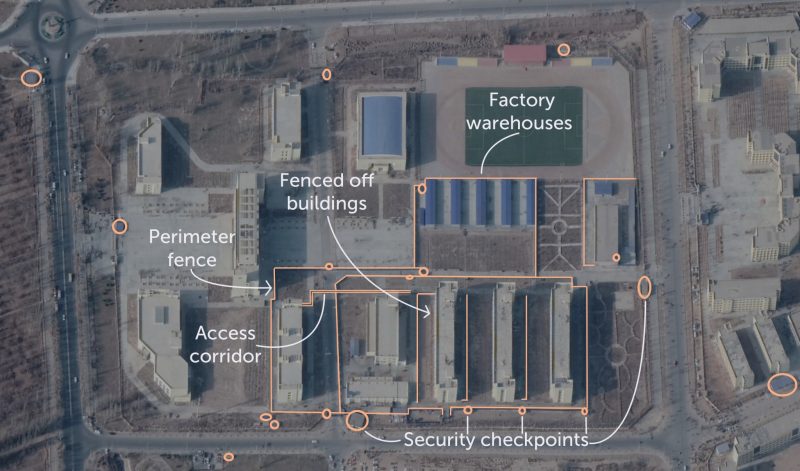 POLICY
POLICY
 POLICY
POLICY
 POLICY
POLICY
A report published Monday by the Australian Strategic Policy Institute claims that a large number of global companies are benefiting from the forced labor of Uyghurs and other minorities.
A total of 83 companies are listed in the report, and some of those names are Microsoft Corp., Apple Inc., Amazon.com Inc., Google LLC, Huawei Technologies Co. Ltd., Samsung Electronics Co. Ltd. and Sony Corp.
The report states that about 80,000 Uyghurs and a number of other ethnic minorities have been moved from the Xinjiang region in China and sent to work in factories that suggest “forced labor.” Besides being sent to work in dozens of factories for large global corporations, the researchers said the workers have also been part of a “re-education” campaign by the Chinese government.
“In factories far away from home, they typically live in segregated dormitories, undergo organized Mandarin and ideological training outside working hours, are subject to constant surveillance, and are forbidden from participating in religious observances,” said the report. “Numerous sources, including government documents, show that transferred workers are assigned minders and have limited freedom of movement.”
ASPI went on to say the 80,000 number was a conservative estimate, and it has so far identified 27 factories in nine Chinese provinces. The workers are said to have graduated from re-education camps where they were forced to denounce their religion. After graduation those workers were forcibly sent to work in factories, which was part of a government initiative called “Xinjiang Aid.”
The Chinese government has denied mistreating the workers and had said the scheme has only been to “fight terrorism and separatism in Xinjiang.” It seems there’s a kind of double-speak going on, since China calls the camps and factories “vocational training centers,” while reports have surfaced that make the labor programs sound more like oppressive forced labor under constant surveillance.

Indeed, when the Washington Post visited one such site where Nike Inc.’s products were being made, it described something that sounded more like a prison, with barbed wire fences and watchtowers. That report stated that workers were not allowed to go back to their province.
In a statement to the media, Apple said it is “dedicated to ensuring that everyone in our supply chain is treated with the dignity and respect they deserve.”
Microsoft said it would investigate the claims, adding that all forms of forced labor are banned by its supplier code of conduct. “Microsoft is committed to responsible and ethical sourcing,” the company said in a statement. “We take this responsibility very seriously and take significant steps to enforce our policies and code of conduct in support of human rights, labor, health and safety, environmental protection, and business ethics through our assurance program.”
Support our mission to keep content open and free by engaging with theCUBE community. Join theCUBE’s Alumni Trust Network, where technology leaders connect, share intelligence and create opportunities.
Founded by tech visionaries John Furrier and Dave Vellante, SiliconANGLE Media has built a dynamic ecosystem of industry-leading digital media brands that reach 15+ million elite tech professionals. Our new proprietary theCUBE AI Video Cloud is breaking ground in audience interaction, leveraging theCUBEai.com neural network to help technology companies make data-driven decisions and stay at the forefront of industry conversations.